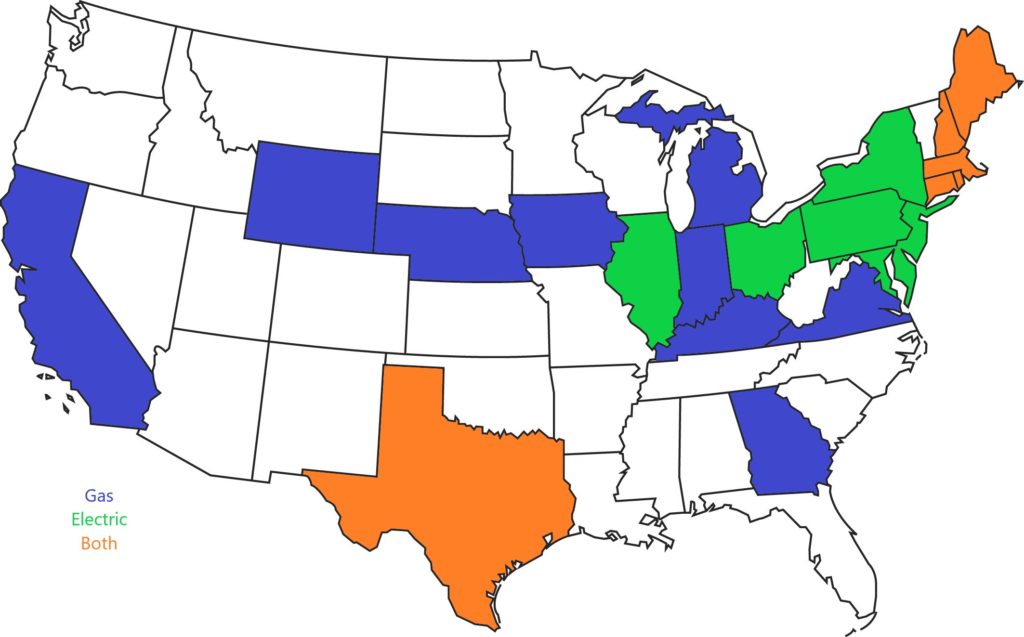Why Don’t All States Have Energy Choice?

Energy choice is an industry term for the ability to choose who provides your energy supply. The term “energy choice” can be used interchangeably with “energy competition.”
People began using natural gas and electricity over 100 years ago.
It was the quickest and easiest for one company to provide the services, ensuring that both commodities were available to everyone. In order to promote universal natural gas and electricity coverage, states enacted laws that created utility monopolies. In exchange for having a monopoly, the utility had to agree to serve everyone in the area. Since then, this policy has largely worked. In the U.S., most homes or businesses are assigned to a utility-specific territory. But, when possible, we know that competition is better for the consumer.
It didn’t take long before people started to demand more choices for their natural gas and electricity service.
They began pushing the states to change the laws to allow for more competition. Some states responded to these efforts by enacting new laws that allowed competitive energy suppliers to sell natural gas and electricity supply products, while keeping the utility as the company that delivers the energy product.
States began passing laws that allowed for competition in the marketplace in the 1980s for natural gas, and the 1990s for electricity.
Currently, 20 states allow some type of energy choice.
You can see on the map that there are several states that allow consumers to choose their energy supplier. Even the states that aren’t shaded on the map may allow some customers to choose their energy supplier – like larger businesses, but not smaller residential customers.
Additionally, even in those states that are shaded in, there may be parts of the state that do not have energy competition – like rural areas with low population density. In 2017, Texas was the closest state to be completely deregulated, with 85% of customers having access to energy choice.
Are natural gas and electricity the only industries that have utilities?
No. There are a few other industries, like water, that use utilities to provide service. Interestingly, there are a few industries – like the telephone, airline, and railroad industries – that used to be monopoly utility services. However, after laws changed, these industries now have open competition, allowing consumers the opportunity to choose. In these industries, open competition has resulted in lower prices, more innovative products, and better customer service.Let’s keep in touch.
Even if you live in a regulated state, laws are always changing. And being a well-educated energy consumer can help you take control of your energy in many different ways. Leave us your email and we’ll be sure to send you updates and tips to help you stay in the know.